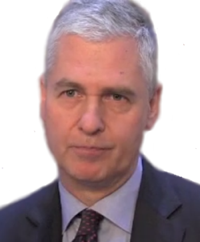When the Millennium Development Goals were set up fifteen years ago, the research community was sceptical about how seriously they could be taken, and were concerned they were too simplistic in their approach. Now they have come to their conclusion, we realise that these goals have been critically important for guiding development and investments, so we are now really sitting up and paying a great deal of attention to the formation of the new Sustainable Development Goals (SDGs).
Agricultural research is going to be at the core of many of the SDGs, not just goal two to end hunger and boost agricultural productivity. We have a role in health, climate change and sustainability. It is difficult to believe we could meet these SDGs, without significant progress in agriculture.
With this in mind, CGIAR, the world’s biggest publicly funded agricultural research partnership, is taking on a whole new strategy. The specific SDG goals will be going into our results framework that we use to report progress to our donors. The SDGs will become the framework that guides our research.
As part of this new strategy, CGIAR is also shifting to thinking a lot more about what we call systems research. What do we mean by this? We know that very few farmers grow a single crop. They operate in much more complex systems than that, they may grow maize, intercropped with legumes, they may have livestock and various trees. To understand how farmers can make the most of their farming, we need to look at this whole system.
Furthermore, we need to consider the system that goes beyond the farm. Farmers are growing crops that will be sold, so we need to consider where we can improve the agro-foodsystem that leads all the way to the consumer, from the farm to processing plant, to retail. What are the bottlenecks in this system that need to be addressed, to make sure more people are getting the nutritious food they need? Our work with our partners will also pay close attention to this.
For many people, social science plays a very important role in systems research, as it should be all about empowering the farmer, listening to them and finding out what it is that they need. One way in which we do this is through innovation platforms that that involve all stakeholders in the innovation process. This implies involving farmers in the research we are carrying out, to make sure the final product suits their needs.
If I sum up CGIAR’s response to tackling the SDGs, I would use two words: sustainable intensification. Intensification means we cannot simply continue to expand farmland. We have to find a way to grow more nutritious food, and be more efficient on the same amount of land. And we have to do that sustainably, in a way that leaves behind healthy ecosystems, and build our environment’s resilience to the on-going challenges that climate change presents.
The challenges our food systems face are complex and wicked. But with a systems approach, that uses the Sustainable Development Goals as a framework to benchmark success, at CGIAR we believe we can tackle these challenges head on.



